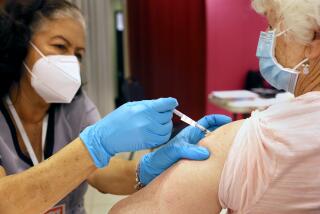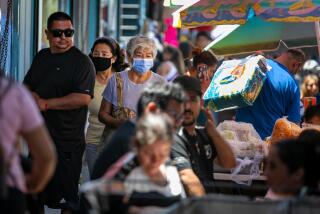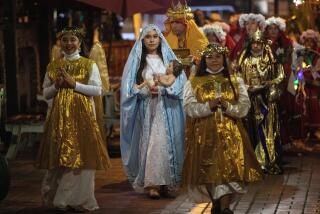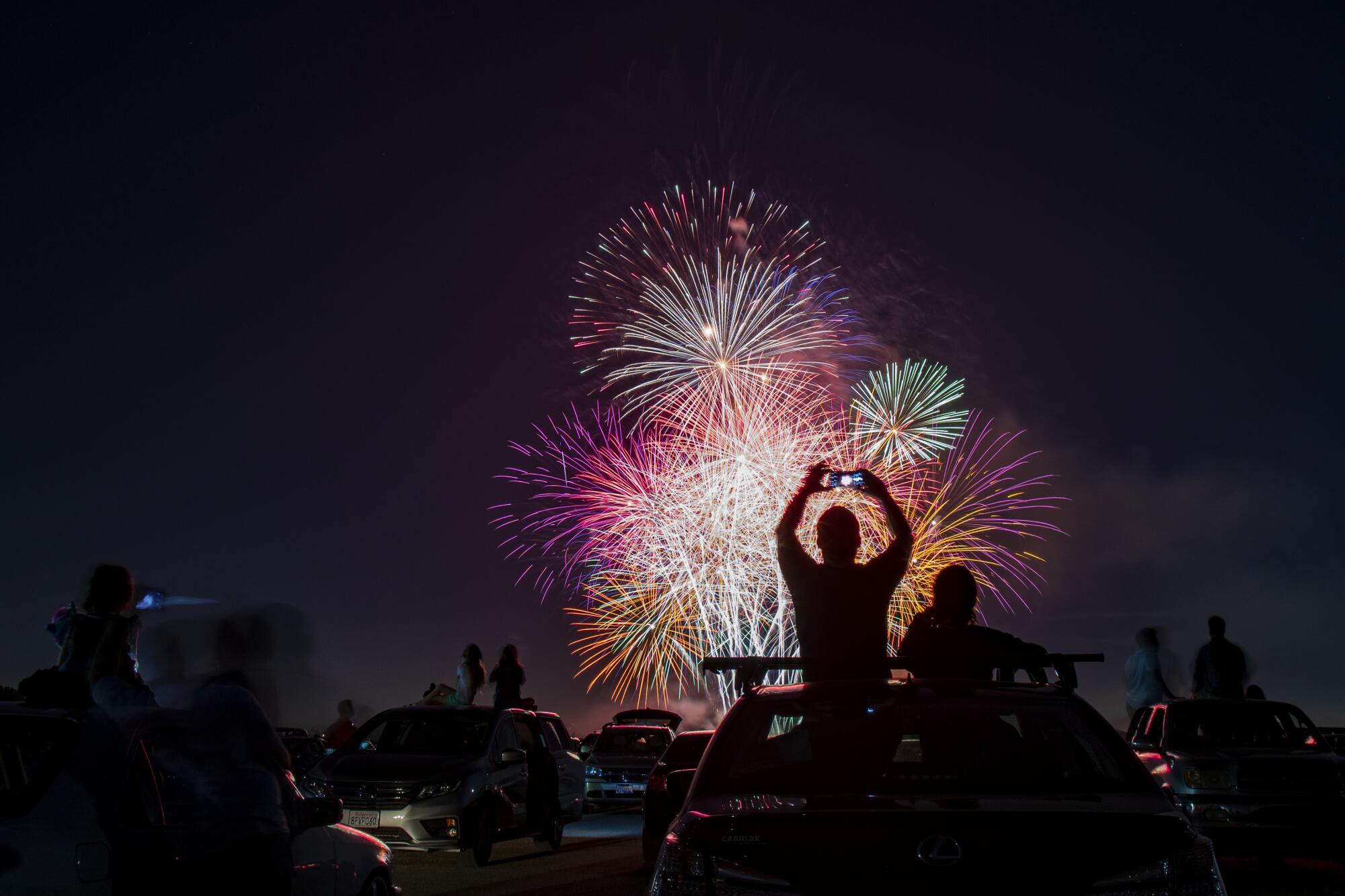
- Share via
Kenzy El-Mohandes crested a hillside in Griffith Park early Saturday afternoon, eager to avoid the Fourth of July crowd she thought she and her friend would meet once they reached the observatory. With beaches closed for the holiday weekend, she assumed locals would flock to the park instead.
But as she rested on a grassy knoll and took in the sun, she was surprised to see a small, socially distanced crowd.
“It’s a normal weekend, we’re not feeling the patriotic spirit,” El-Mohandes said. “I’m less aware that it’s Fourth of July than normal years.”
The subdued Independence Day was exactly what officials ordered as California has struggled with a major spike in both coronavirus cases and hospitalizations over the last month as the economy reopened, placing the state back in the danger zone.
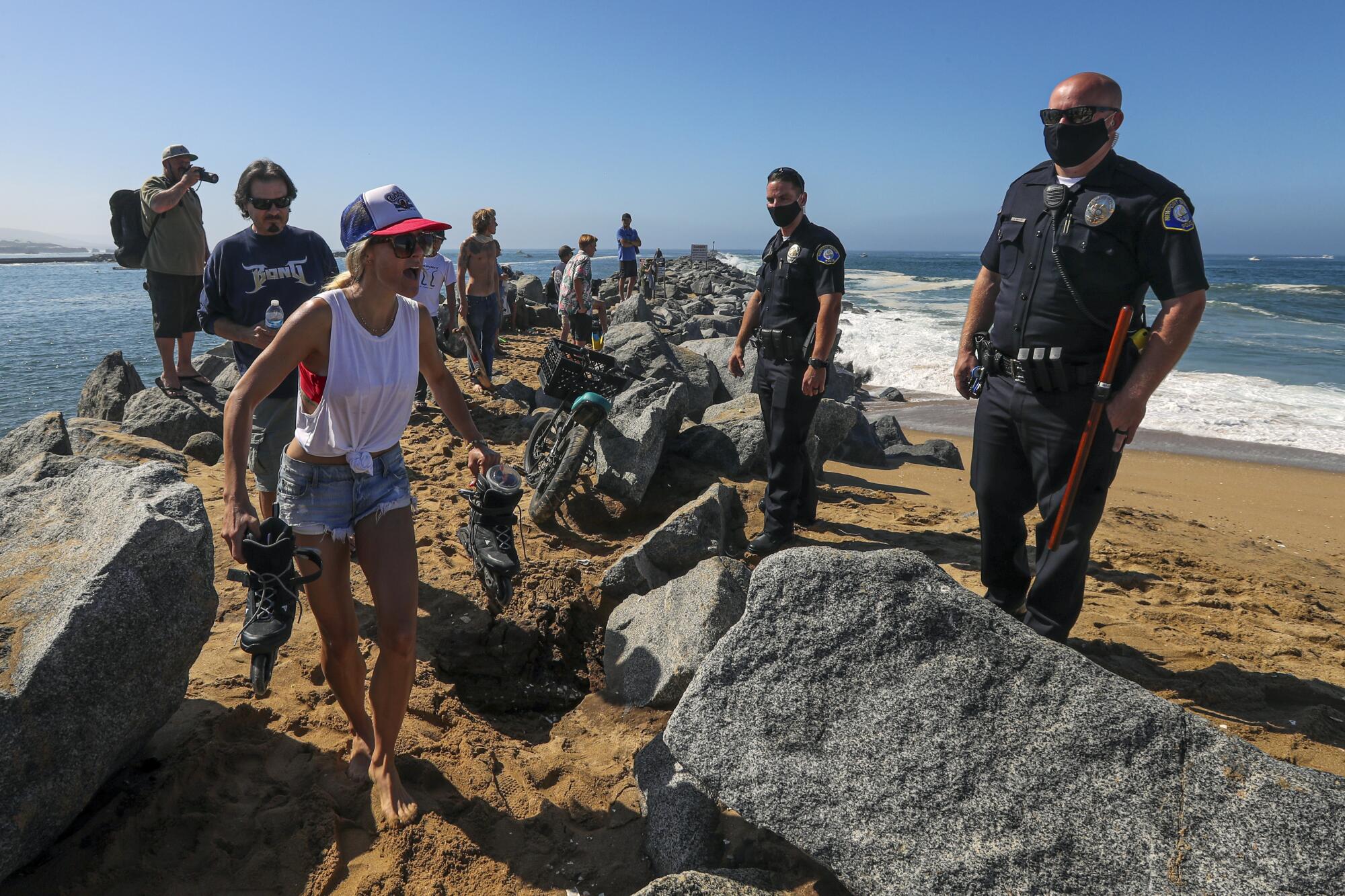
Officials had feared a July 4 weekend of crowded beaches, barbecues, parties and packed restaurants would cause a surge in new infections, further overwhelming already filling hospitals. Data showed that California’s COVID-19 surge began during the Memorial Day weekend as people stuck inside for months decided to get back to old routines.
But it appears dire warnings as well as new restrictions had the intended effect — at least so far.
Los Angeles County banned fireworks displays, some parades and marathons moved online, and cities from Big Bear to Burbank canceled holiday shows. Huntington Beach’s popular Main Street parade was replaced by one that roamed through residential areas, allowing social distancing.
There were continued protests in downtown L.A. and elsewhere over the police killing of George Floyd in Minneapolis, but many in attendance were wearing masks. One of the few holdouts was Lancaster, where officials were set to go forward with a fireworks show despite COVID-19 concerns.
In Santa Monica, the pier stood empty over a closed and deserted beach.
Janet and Shine Ling sat in lawn chairs in a cliff park off Ocean Avenue, where they could see sailboats glide in the Pacific hundreds of yards away.
“No one’s stopping us from sitting here right now, so we’re enjoying the beach from a distance,” Shine said.
On any other Fourth of July, they’d be down in the sand, Janet said, but this year the picnic had to move.
The siblings said they hadn’t seen each other since January. “We were debating whether we should even hang out,” Shine said.
“Is it too close? Is it unsafe?” Janet wondered.
Two weeks ago, Shine went to the now-closed beach for his birthday.
“I went right up to the water,” Shine said. “Nobody was wearing a mask, but everybody was keeping six feet of distance and the wind was pretty stiff, so I was like, ‘You know what, I do feel pretty silly wearing a mask.’”
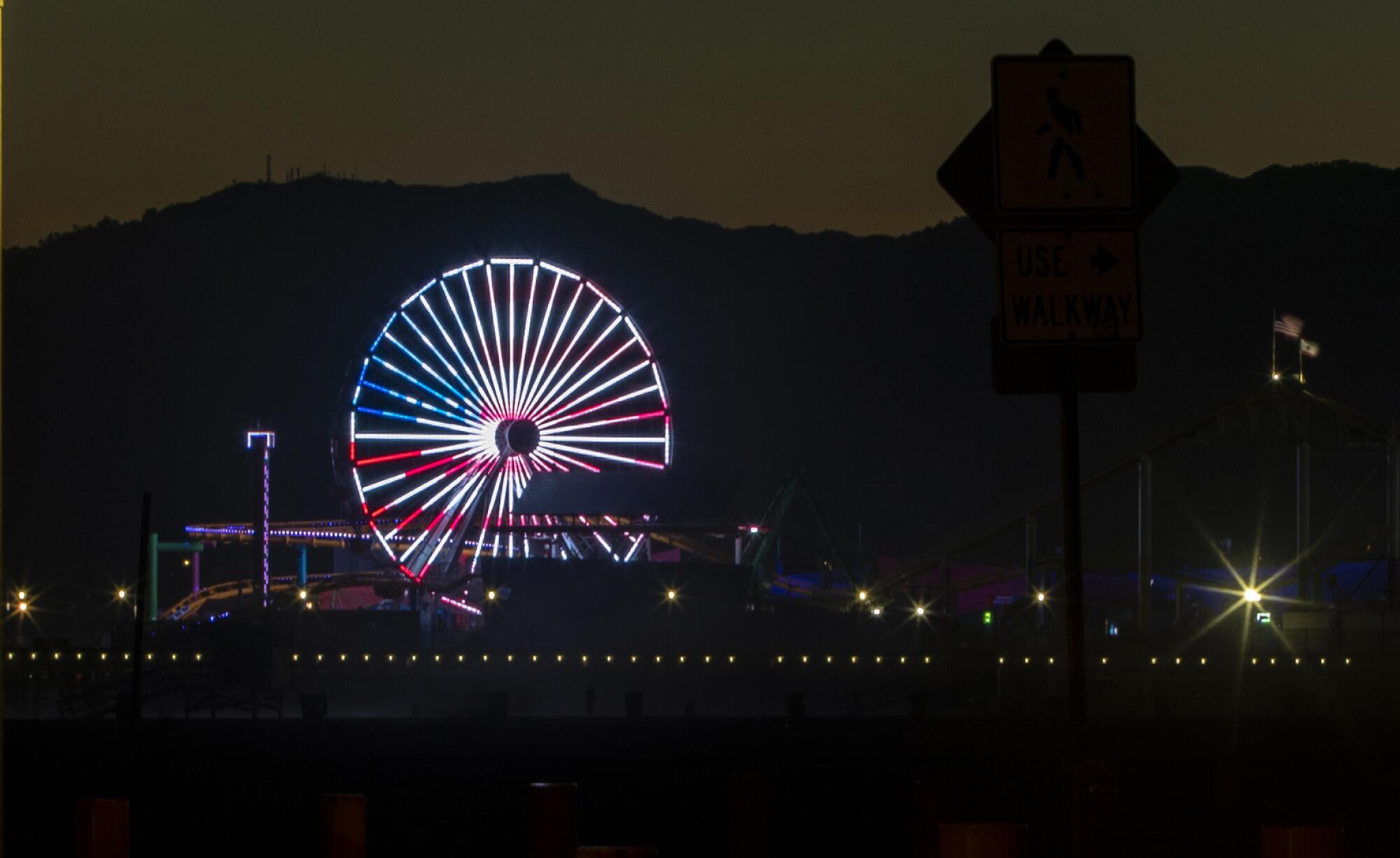
Janet has had her own mask dilemma. “I’ve had a lot of experience with anti-Asian sentiments, especially when I’m wearing a mask,” she said. “So, for me it’s kind of a mixed bag. Do I try to do this to help others, or do I try to be safe for myself so I don’t get harassed?”
To try to tame the Fourth, Gov. Gavin Newsom imposed new restrictions on indoor dining at restaurants in many counties. Some communities including Santa Monica and West Hollywood said they would fine people who were not wearing masks, which is required in public spaces under a state order.
One risk area harder to detect is private social gatherings inside private homes, which officials believe has been a major cause of the latest infections.
California now has more than 252,000 confirmed COVID-19 cases and more than 6,300 deaths.
In Griffith Park, most visitors sat far apart from one another, some with masks and others without face coverings as they lounged with family and friends.
Jelani Dula and two friends made the road trip from San Jose to Southern California for the holiday weekend. The 21-year-old said he was excited to see famous L.A. sites — especially the unobstructed downtown skyline free of smog — but wasn’t in a celebratory mood because of “all of the civil issues and racial issues going on.”
“This Fourth of July doesn’t really feel the same,” Dula said, taking in the view while his friends took pictures.
Near Olvera Street downtown, members of indigenous groups joined with Black Lives Matter organizers in a peaceful protest that called for unity among minorities and an acknowledgment of the nation’s many sins on its birthday.
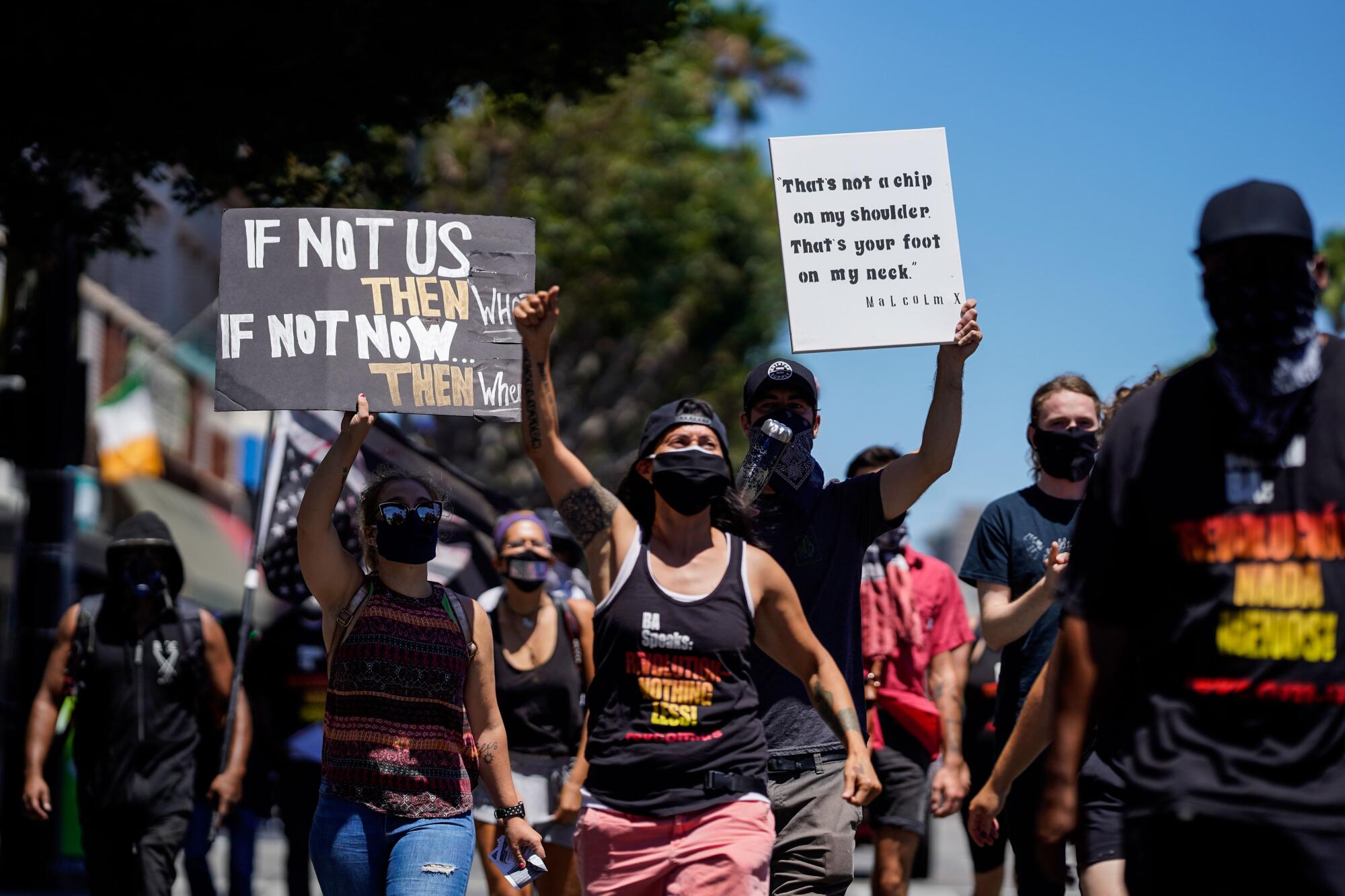
Some burned incense, tobacco and sage, while others spoke of the “Farce of July.” Many marched to Grand Park and beyond with signs calling for the “abolishment of ICE,” the defunding of police and justice for Andrés Guardado, Breonna Taylor, George Floyd and others slain by law enforcement. The protesters all wore face coverings.
Indigenous leader Shannon Rivers, of the Akimel O’otham people, called on about 400 demonstrators to understand “the many lies” taught to American youths that prop up “white supremacy” at the cost of all native peoples and minorities. He asked Black Lives Matter to join the indigenous movement before saying forcefully, “Black lives matter.”
Not far from Olvera Steet, at Echo Park Lake, the hundreds of families gathered there provided a semblance of holiday normalcy. Vendors sold small toys, plates of carne asada and French-style crepes. Most visitors celebrated from a distance, but masks were less common.
Skylar Falgout, 26, drove from Sherman Oaks to enjoy the scenery and eat her lunch. This year, she didn’t feel like celebrating.
“With the way the social climate is going, it doesn’t feel right,“ she said, as more than a dozen swan-shaped pedal boats cruised across the lake. “I would have hung out with friends, but hanging out with people is a bad idea right now with the way the pandemic is going.”
Ronald Sarver walked along the Veterans Administration campus in West Los Angeles, where he had recently moved into L.A.’s first temporary tent city in four decades — an area meant for veterans without homes so they can wait out the COVID-19 crisis by sheltering in place and social distancing in their own tents.

“It’s better than nothing at all. Before this, I was waking up and all I had was a prayer,” said Sarver, who served in the Navy during the Iran hostage crisis.
Now, he said, he has a place to sleep and eats three meals a day. He’s grateful to have a place as the coronavirus — what he called “an act of God” — tears through the city.
On Independence Day, Sarver said, he felt patriotic.
“I was thinking earlier, and I teared up a little bit,” he said, an American flag pinned to his shirt.
Down the street, a row of identical tents bearing that same red, white and blue flag lined the sidewalk outside the VA grounds. Standing among them, Luis Placencia, who donned an American flag baseball cap, wasn’t as caught up in Saturday’s festivities.
“To me it’s just another day. What’s the meaning of it?” he wondered. “The independence of who, from what?”
Placencia, who at 59 said he would fight for the country again if called upon, lives close to the tents in a campus apartment renovated for unhoused veterans. As he visited a friend, he questioned the necessity of the string of tents that bend and curve with San Vicente Boulevard. There are empty buildings on the VA campus, he said.
Giovanni Villa, whose tent sits under an Army Veteran flag and a star-spangled banner, said he was grateful to have his spot.
“These tents are wonderful. This is the first home I’ve had in about five years,” he said. “It’s someplace where I can try to get myself going. It’s hard being homeless .... It’s not a house. It’s not a bathroom, or a shower, or a refrigerator.”
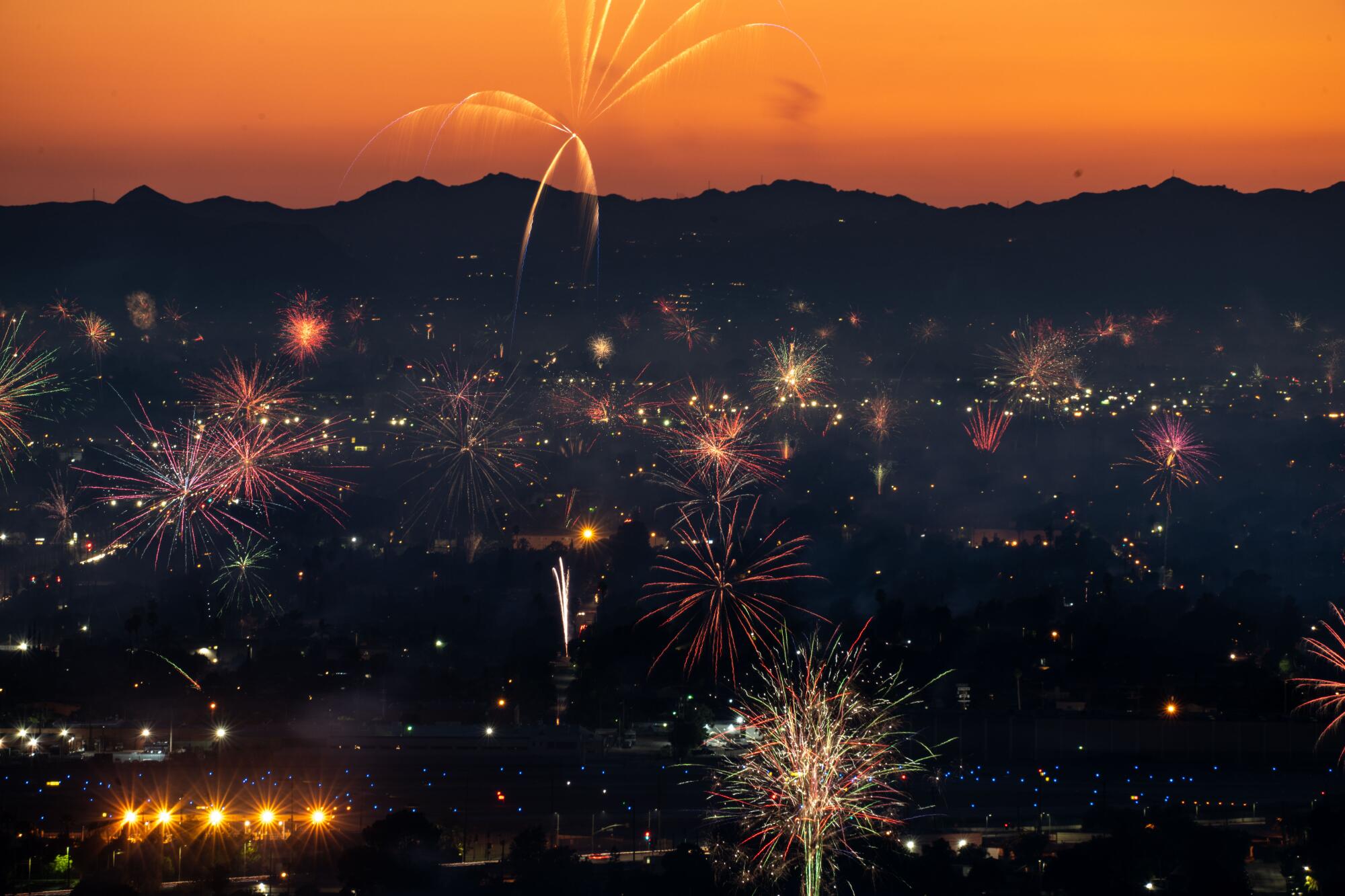
Villa said he welcomed the holiday because “it brings our nation together for a reason that’s kind of sacred to us: the sacrifices men and woman have made for our country.”
Even as the coronavirus has made life more difficult — he’s having trouble obtaining an ID and his stimulus money — the Army veteran said he is proud to be an American.
“I’m glad to live in this country. Even though there are a lot of vast problems, there are a lot of good people that are broad-minded and have their own thoughts,” he said.
“That’s what being an American is: to be able to express yourself in a respectful way to others and not be condemned for it.”
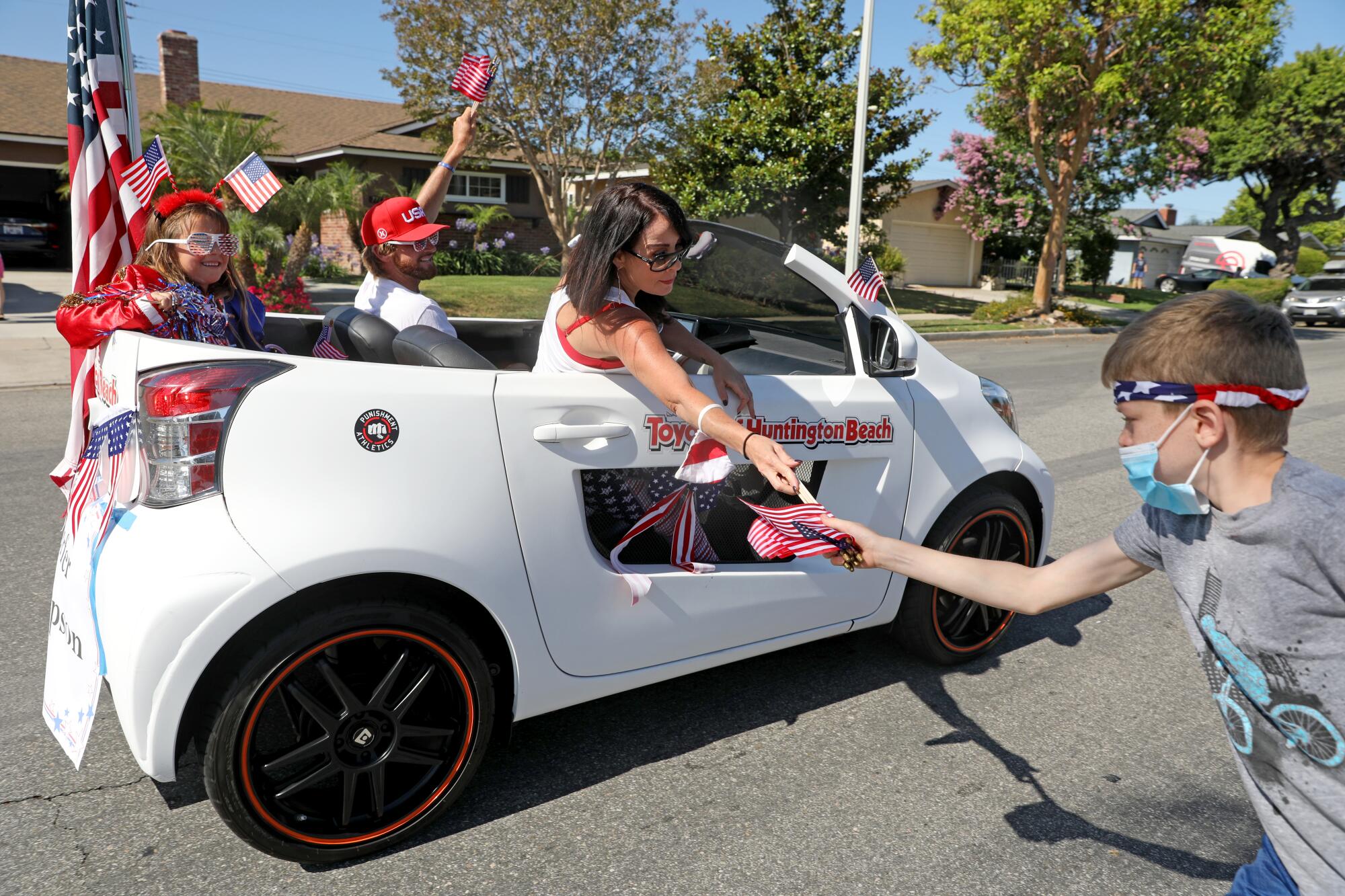
Times staff writer Jack Dolan contributed to this story.
More to Read
Sign up for Essential California
The most important California stories and recommendations in your inbox every morning.
You may occasionally receive promotional content from the Los Angeles Times.
